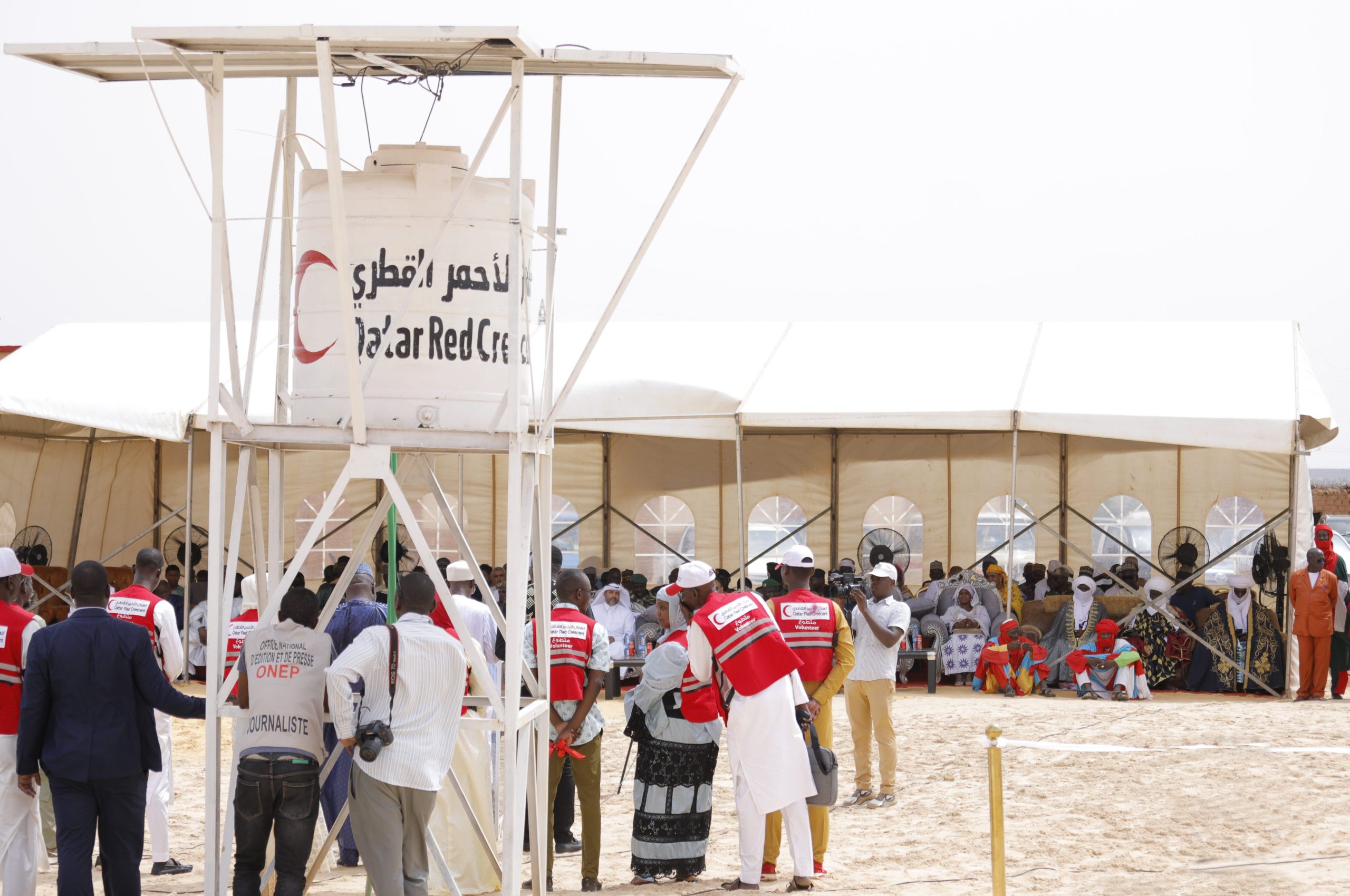QRCS had reopened its representation office in Niger in May 2023 and has since carried out projects to support the population.
The Qatar Red Crescent Society (QRCS) has inaugurated a residential village in Niger consisting of 33 housing units among other basic buildings for the area’s population to benefit from.
The Qatari entity announced the opening of the village on Sunday in Niger’s Koutoukale Koira Tegue region in a ceremony that saw the attendance of QRCS’s Director of Relief and International Programs Division, Mohamed Salah Ibrahim.
The village includes an artesian well, a mosque and a school, while QRCS also provided it with the basic infrastructure.
“QRCS’s interventions in Niger range from shelter, water and sanitation and health to livelihood, food security and disaster response, in keeping with national development plans,” Ibrahim said in a statement.
The latest project comes against the backdrop of wider efforts by QRCS to support those in need in Niger, which has suffered from conflicts, displacement, and climatic hazards.
In August 2023, QRCS launched a $146,897 project to implement four anti-blindness and eye treatment camps for 1,200 poor people in Tillaberi. This came after QRCS reopened its representation office in Niger in May 2023.
The same year witnessed the beginning of a military coup on July 26 that deteriorated the human rights situation.
At the time, the self-proclaimed National Council for the Safeguard of the Homeland (CNSP) decided to overthrow the government of President Mohamed Bazoum.
Bazoum was arrested and General Abdourahamane “Omar” Tchiani appointed himself as the head of the country’s new military government. By August 19, Tchiani announced a three-year transition to a democratic rule, though it was rejected by the Economic Community of West African States.
According to the United Nations, Niger currently faces an acute and complex humanitarian crisis, with 4.5 million, about 17 percent of the 26.6 million population, requiring humanitarian assistance.
By the end of 2023, approximately 3.3 million people were forcibly displaced across the Sahel region, including ones from Niger, Burkina Faso, Mali and Mauritania. The UN cited political instability, escalating violence and food insecurity as some of the reasons behind the large number of displacement.







